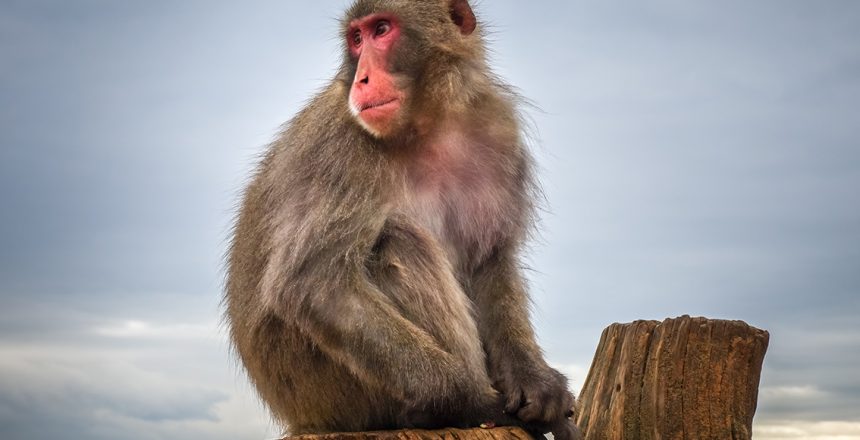In the early 1950s, a team of primate experts studied the behaviour of a troupe of Japanese monkeys inhabiting the tiny island of Kojima. One of the experiments involved introducing the monkeys to new food by dropping wheat and sweet potatoes on the beach, and then observing whether and how their behaviour changed.
After a while one of the monkeys, Imo, began washing her sweet potatoes in the ocean before consuming them. With time other monkeys began to also wash their sweet potatoes. Once a hundred or so Kojima monkeys were regularly washing their sweet potatoes, the habit rapidly spread to other monkey colonies in the region.
This natural experiment provided evidence for what is now a widely accepted phenomenon: once a critical number of individuals in a team, community or society adopt a new behavior or accept an idea, it will spread rapidly (and unexplained) to other groups.
There is only one problem – the hundredth monkey effect is an urban legend. To begin with, there was only ever a maximum of 59 monkeys in the Kojima troupe. Furthermore, Japanese monkeys cannot swim, there were no observed interactions with colonies from other islands, and the monkeys on the other islands were not provided with sweet potatoes or wheat.
There is no hundredth monkey effect. Instead, it takes considerable and sustained effort for a new intervention or behaviour, like washing sweet potatoes, to be widely adopted and embedded as business-as-usual. Given a choice between hard work or the magical hundredth monkey effect, is it surprising that many implementers, policy makers and healthcare organisations prefer the latter?
The myth of the hundredth monkey effect also detracts from the interesting, important, and practically useful lessons that were learned by observing the Kojima monkeys. Imo continued to innovate. Once she had learned how to wash her sweet potatoes, she began throwing handfuls of wheat into the ocean to sift out the sand and collected the grains floating to the surface.
With time other monkeys adopted Imo’s new wheat sifting technique. Eventually, there was not enough wheat for the number of sifting monkeys, and they began competing for a highly desirable but finite resource. The physically stronger monkeys adapted by simply stealing the sifted wheat from their weaker companions. Eventually, the diligent and hard-working monkeys became sufficiently discouraged that they stopped sifting wheat altogether.
Imo’s sister was an innovator in her own right and developed new behaviour that demonstrated to the other monkeys how much fun the ocean could be. Initially, the monkeys had been fearful of the ocean. They would only put their hands or feet in the water to wash their sweet potatoes or sift grain. However, they started to follow the example of Imo’s sister and gradually submerged more and more of their bodies until they were freely play-splashing in the ocean.
The researchers observed that all the new skills and behaviour developed through a similar process. Once the innovators mastered the new skill, they actively taught it to their contemporaries and family, who then taught it to their contemporaries and so on. Older monkeys were less likely to learn new skills or teach it to others. Younger monkeys and the children of the innovators required less active teaching and learned mainly through observation and experimentation (mimicking behaviour).
There was never a surge in the number of monkeys with any of the new skills. Instead, the proportion of monkeys acquiring a specific, new skill increased gradually as older monkeys died and the younger generation learned the skill.
The experiences of Imo and the Kijomo monkeys potentially applies to all efforts to improve the quality and safety in Australian healthcare, including the specialty of General Practice, in at least seven ways.
- Innovation often requires external, recurrent investment. Without the daily and ongoing provision of sweet potatoes, the new skill of washing sweet potatoes would not have developed or become embedded in monkey business.
- People change their behaviour to align with influential peers and elders (seniors). Organizational culture and clinical champions are therefore equally or more important than educational resources and mandatory training programs.
- People will persist with behaviour that they perceive as having personal value, whether it means receiving rewards or recognition, reaping material benefits or simply having fun. Monkeys stopped sifting wheat when they did not personally benefit from the work but continued playing in the ocean.
- New behaviour, knowledge, skills or interventions gradually spread. It is possible to facilitate spread to some degree and with concerted effort, but there are no sudden surges, and even the most valuable skills and interventions are rarely universally adopted.
- Innovators should not automatically be given responsibility for spreading their innovation or the related education and training. Imo trained only a few contemporaries, then continued innovating. Successful teams and organisations make the most of the unique strengths and skill sets of individuals.
- There are often unintended consequences when a new behaviour is adopted or an intervention is implemented in complex adaptive systems. Imagine predicting that the provision of a free resource (wheat) will increase the rate of crime (theft).
- It is essential to test interventions, assumptions, and contexts. Sweet potatoes and wheat are both desirable food for monkeys, and both triggered the development of new skills. However, one skill became normalized (washing sweet potatoes) and one disappeared completely.

